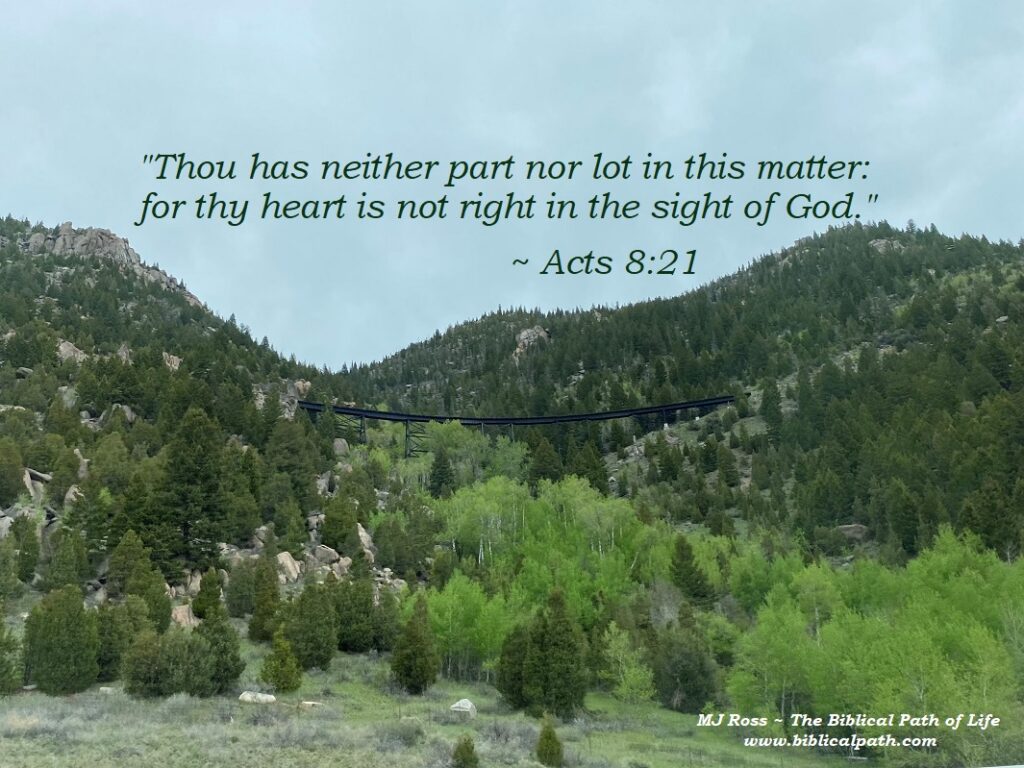
“And it shall come to pass, that whosoever shall call on the name of the Lord shall be saved.”
Acts 2:21
In the early days of the church, there were varied responses to the Gospel Message of Jesus. Many readily believed. However, most of the religious leaders refused. We can read that their rejection became progressively worse.
- First, we learn that some people were pricked in their heart, and they believed in Jesus (see Acts 2:37):
When Peter preached in Acts 2, all of the house of Israel should have recognized Jesus. “Therefore let all the house of Israel know assuredly, that God hath made that same Jesus, whom ye have crucified, both Lord and Christ” (Acts 2:36). Christ means “the Savior of the world.” They were to believe Jesus is the Savior of the world. But, how did they respond? “Now when they heard this, they were pricked in their heart, and said unto Peter and to the rest of the apostles, Men and brethren, what shall we do?” (Acts 2:37). When they heard the Gospel message preached, they were “pricked in their heart.” Pricked means “greatly pained or deeply moved.” It is important that the Gospel message had a movement in their heart. Sometimes we call this “conviction” (which means “found guilty of an offense”). However, it is more important what those people did with that movement. Peter told them what they must do. “38. Then Peter said unto them, Repent, and be baptized every one of you in the name of Jesus Christ for the remission of sins, and ye shall receive the gift of the Holy Ghost. 39. For the promise is unto you, and to your children, and to all that are afar off, even as many as the Lord our God shall call” (Acts 2:38-39). The people had to take action: repent. Repent means “to imply pious sorrow for unbelief and sin, and a turning from them to God and the gospel of Christ. To think differently; a change of mind demanding a change of action.” Repentance is a response between a sinful man and God. Baptism is an outward testimony of what happened to that individual’s heart. Notice that God “called” them. Call means “God’s call through the Gospel message.” God must call the person. What did the people do once they understood? “Then they that gladly received his word were baptized: and the same day there were added unto them about three thousand souls” (Acts 2:41). Those who believed in Jesus, responded to God’s call. There were three thousand people who believed!
- Then we learn some religious leaders were cut to the heart, but they sought counsel to slay those who preached Jesus (see Acts 5:33):
Peter preached another great sermon in Acts 3. He wanted the people to recognize that not only was Jesus God’s Son, but that this people had chosen to release a murderer instead of Jesus. However, Peter excused them because of their ignorance. “And now, brethren, I wot that through ignorance ye did it, as did also your rulers” (Acts 3:17). But Peter was there to help them understand – so they would not remain ignorant, by reminding them of the prophets words that are found throughout the Old Testament. “But those things, which God before had shewed by the mouth of all his prophets, that Christ should suffer, he hath so fulfilled” (Acts 3:18). Peter preached Jesus from the Old Testament (see Acts 3:20-26). Because the religious leaders did not like what Peter and John preached, they arrested them (see Acts 4:3). “Howbeit many of them which heard the word believed; and the number of the men was about five thousand” (Acts 4:4). Nevertheless, many others believed.
Peter proceeded to preach Jesus to the religious leaders: “Neither is there salvation in any other: for there is none other name under heaven given among men, whereby we must be saved” (Acts 4:12). The religious leaders told them to quit preaching Jesus. However, the Apostles preached and taught daily – even after being put in prison. When they were ordered to quit teaching in Jesus’ name, they understood it was more important to obey and please God, rather than man (see Acts 5:29). Peter continued by preaching Jesus to these religious leaders. How did they respond to the Gospel message? “When they heard that, they were cut to the heart, and took counsel to slay them” (Acts 5:33). They beat the Apostles, told them to not speak in the name of Jesus, and let them go. Instead of receiving the Gospel message of Jesus, they rejected it and wanted to kill the messengers.
- Finally, we find they were cut to the heart and killed the messenger, Stephen.
“And Stephen, full of faith and power, did great wonders and miracles among the people” (Acts 6:8). The rulers of the synagogue rose up and disputed with Stephen. “And they were not able to resist the wisdom and the spirit by which he spake” (Acts 6:9). After lying about Stephen and setting up false witnesses against him, Stephen was allowed to speak. He preached from the Old Testament addressing the false accusations against him. “Ye stiffnecked and uncircumcised in heart and ears, ye do always resist the Holy Ghost: as your fathers did, so do ye.” (Acts 7:51). These men had not kept God’s Word (see Acts 7:53). “When they heard these things, they were cut to the heart, and they gnashed on him with their teeth” (Acts 7:54). Although they were cut to the heart, they rejected Jesus and His Word. They then killed the messenger. Instead of repenting, these religious leaders took Stephen out and stoned him.
Many believed in Jesus. However many rejected Him. The choice was up to each individual.
Have you been pricked in your heart when you heard the Gospel Message of Jesus?
Have you responded to the call of God through the Gospel message?
What is the Gospel Message of Jesus Christ?








